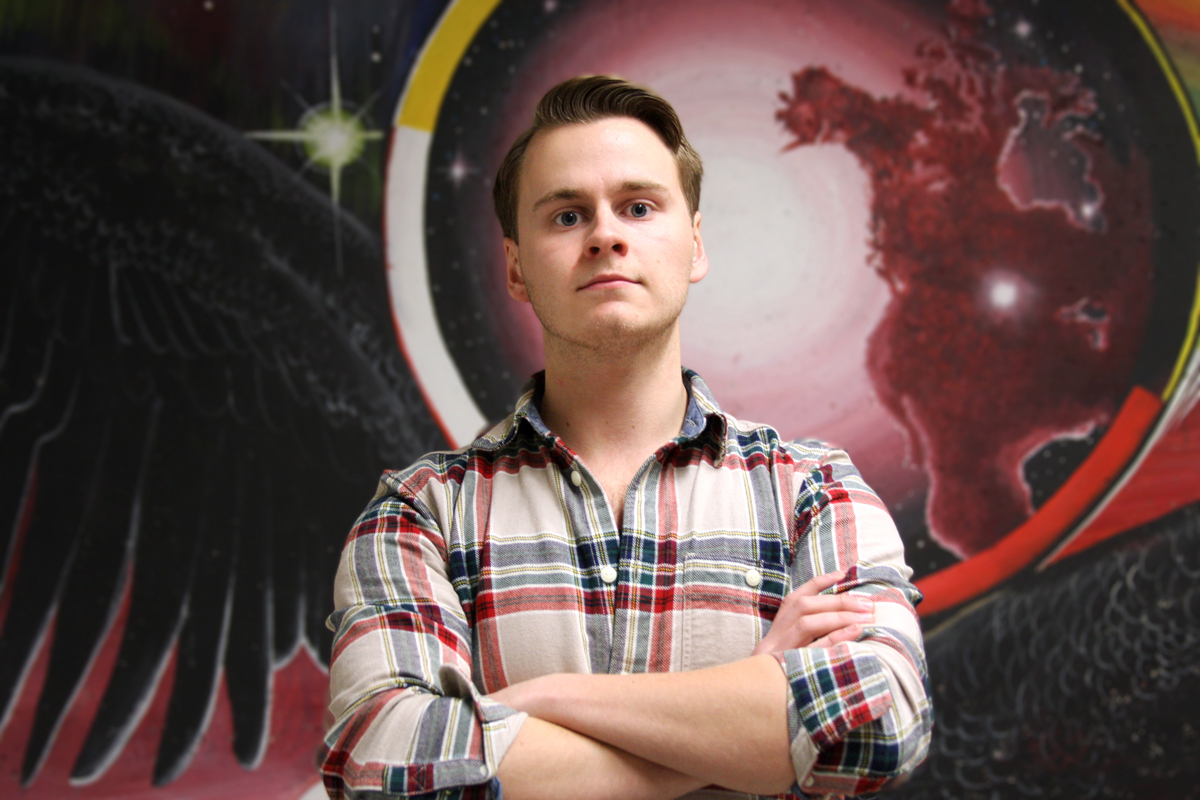When speaking to predominantly Jewish audiences, Kasim Hafeez often begins by saying the following words: “When I was in university, I would have gladly killed every one of you.”
By his own admission Kasim Hafeez was three months away from going to a Jihadist training camp. He easily could have ended up as a suicide bomber.
If this doesn’t get your attention, nothing will. But the story of Kasim Hafeez, and his journey from hating Israel and the Jewish people, to becoming a self described “Zionist,” is one of the most remarkable transformations I have ever heard of.
On Feb. 6, I had the opportunity to attend a speech by Hafeez titled: “Changing the narrative of Israel in the Muslim community,”
Hafeez was born in the U.K., where, as he tells it, he was raised in an anti-Semitic and anti-Israel environment and was radicalized while attending university. He grew up going to anti-Israel and anti U.S. protests. He was repeatedly told “everything was a conspiracy by the West.”
He began by telling the audience that the situation in the U.K. today is terrible; anti-Semitic attacks, especially at university campuses create fear among Jewish citizens. He became “radicalized” at the university, attending many anti-Israel events and movies — even seeing peers intimidating Jewish students.
He discussed the anti-Israel movement, a movement that often defines itself as “anti-Zionist.” He said that he could “not tolerate the term anti-Zionism,” because it’s “just anti-Semitism repackaged.” He said that among his group, despite their hatred for Israel and the Jewish people, “Nobody would say they were an anti-Semite, we all said we were anti-Zionist instead.”
He took part in events where he and his friends chanted “death to Israel”, and openly called for “the slaughter of Jews.”
And in a sad exemplification of the maxim that “Evil can only triumph when good men do nothing,” nobody at the university campus did anything in response to these horrible words.
Hafeez legally purchased Al Qaeda DVD’s, and was in his own words “completely indoctrinated.”
Hafeez said that he formed a plan. He would go to Pakistan, and join a Jihadist training camp.
One day, while in a bookstore, Hafeez came across the book “The Case for Israel,” by Professor Alan Dershowitz. He bought the book so that he would be able to understand the “Zionist lies,” expecting to be able to shoot down all of its arguments. Instead, as Kasim put it, “Dershowitz went unanswered.” He could not refute the logic of some of Dershowitz’s statements. He was suddenly faced with something that conflicted with everything he had been raised to believe. He suffered a crisis of conscience. His friends would not read the book and told him that the confusion he was experiencing was exactly “what the Jews wanted him to feel.” That he “was being poisoned.”
So, Hafeez decided to go to Israel. He had his stereotypes ready to go. He was expecting all the Jewish people to hate him; he expected “an apartheid state.” It shocked him that he was treated kindly. He saw a nation of people of all colours. He went to the Western Wall Plaza, and saw Christians, Muslims, and Jews. He wanted to go directly to the Western Wall, the most holy site for the Jewish people. He said that he “thought I wouldn’t be able to go in.”
Hafeez went freely to the Western Wall. When he finally reached the wall, and placed his hand on it, he says that he “burst into tears,” realizing he was standing in “the world’s only Jewish state,” a place that six million Jew’s, with the prayer “next year in Jerusalem,” in their hearts, were never able to see.
After this moment at the Western Wall, Hafeez realized that Israel is about the survival of Jewish life, Jewish culture and heritage.
After his trip, Hafeez went through a very dark period. He re-examined all of his past views, and realized that he had been wrong. This took remarkable courage. During this period, he lost many of his friends, and rifts opened up in his family that have not healed to this day. He has not spoken to his father in 10 years.
Hafeez fell in love with Israel. He is proud to say “I’m a Zionist.” One thing he said that particularly stuck with me was “What starts with Israel won’t end with Israel.” Israel is not a Jewish issue he said, it’s about everyone who supports freedom and democracy, human dignity and self-determination. Hafeez now feels that calling Israel an apartheid state is “disgusting,” and that it is a slap in the face to South Africans.
Hafeez calls on all people to promote Israel in the “best possible way.” Share the truth: for example, that the IDF (Israeli Defence Forces) were one of many nations providing humanitarian aid after the Haiti earthquake.
Despite all the difficulty he has encountered, he said that the greater loss for him as a person would be if he remained silent out of fear. He said that supporting Israel was “about his soul.”
Hafeez was direct when addressing anti-Israel groups: “Palestinian activists’ vision of Palestine doesn’t include Israel.” He said there is “one narrative based on lies, and one narrative based on truth.” He urged the audience to advocate for Israel, and not let Canada become like the U.K., where, according to Hafeez, Jewish people are intimidated on a daily basis.
Kasim Hafeez is one of the most courageous people I have had the opportunity to meet. He stepped back from the precipice of hate, and showed that each of us can unlearn our prejudices and become more whole human beings. He gave up most of his friends, and much of his family in order to stand for what he believed was right. How many of us would have the courage to make that choice?
I can only hope that the example set by Kasim Hafeez will inspire people who question the legitimacy of Israel to turn away from the path of war, and fight for peace.
Spencer Fernando is the comment editor of the Manitoban.





What an inspiration this man is. Thank you for making this information available to those of us who couldn’t attend the event!